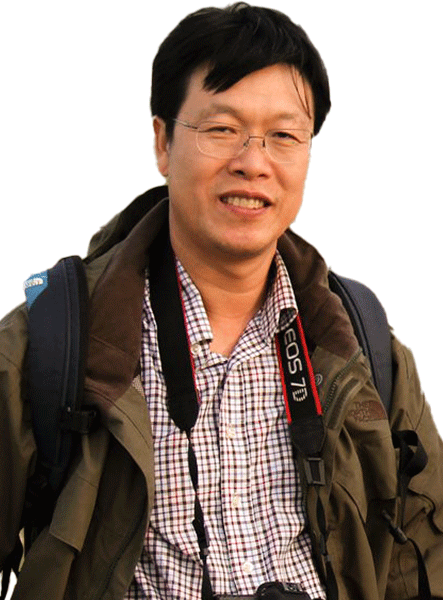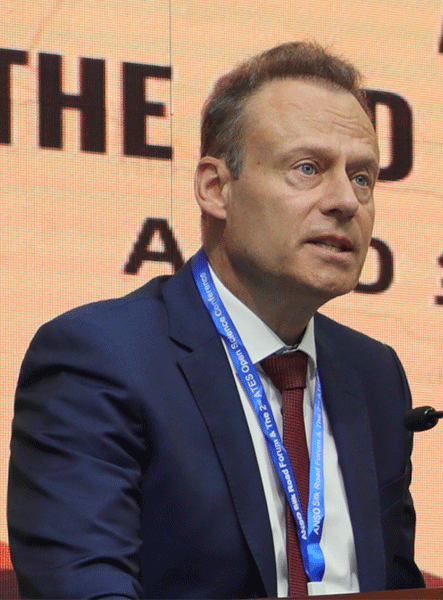
Fahu Chen
Prof. Fahu Chen, elected as a CAS Academician in 2015 and a Member of the World Academy of Sciences (TWAS) in 2016, serves as a research professor at the Institute of Tibetan Plateau Research, Chinese Academy of Sciences. He is the president (2019-2024) of The Geographical Society of China (GSC), and Associate Chairman of the Environment Evolution Commission of IGU since 2012. Previously. Prof. Chen was a professor of physical geography and Quaternary Science at Lanzhou University from 1994 to 2018, director of the Key Laboratory of West China's Environmental System (Ministry of Education of China) from 2005 to 2016, and director of the Institute of Tibetan Plateau Research from 2018 to 2023. He was chairman of Rapid Climatic Changes in the Central-Asia's Dryland under INQUA (INQUA RACHAD Working Group, 1999-2007), and now is vice president of China Society on Tibetan Plateau, and China Quaternary Research Associate.
His scientific work focuses on Quaternary environmental changes (especially in Holocene), climate changes, environmental archaeology, loess records, desert evolution and paleolimnology. His work primarily revolves around paleoenvironmental reconstruction and past human-environment interactions in Arid Central Asia and the Tibetan Plateau. He has made significant contributions in three main areas: 1) Advancing research on the East Asian summer monsoon and loess-dust in China during the late Quaternary, 2) Pioneering the study of the "westerlies-dominated climatic regime" of climate change in the arid central Asia drylands, and 3) Introducing a new perspective on human occupation history and high-altitude adaptation on the Tibetan Plateau.
Prof. Fahu Chen has published more than 710 papers in peer-reviewed journals of both English and Chinese with more than 440 papers published in SCI journals such as Nature, Science, NCC, NG, NS, NC, Sci. Bull., PNAS, ESR, QSR. His work has been cited over 22,700 times in SCI journals, with an H-index of 74. He has led numerous projects funded by organizations including the National Natural Science Foundation of China, the Ministry of Science and Technology, the Chinese Academy of Sciences, and the Ministry of Education. Most of them are involved in international research groups. Currently, Prof. Chen serves as the Executive Editors-In-Chief of Science Bulletin, Editor-In-Chief of Scientia Geographica Sinica, associate editor of Fundamental Research, Frontier of Earth Science, and editor of Journal of Quaternary Science, Palaeogeography, Palaeoclimatology, Palaeoecology, Anthropocene, Geography and Sustainability, One Earth, as well as some associate editor and editor roles in Chinese journals.

Michael Meadows
Michael Meadows is Professor in the School of Geography and Ocean Sciences at Nanjing University and is a Senior Research Scholar in the Department of Environmental and Geographical Science at the University of Cape Town, where he was Head of Department from 2001-2017.
He holds an undergraduate degree from the University of Sussex and a PhD from the University of Cambridge, UK. Meadows has authored or co-authored more than 200 peer-reviewed research articles and edited several special editions of international journals. More substantial works include the co-edited Southern African Geomorphology (Sun, 2012) and Geomorphology and Society (Springer, 2016) and he is currently co-editing volumes entitled Research Directions, Challenges and Achievements of Modern Geography (Springer) and Geography of the Anthropocene (Istanbul University Press).
His research interests lie broadly in the field of physical geography and more specifically concern Quaternary environmental change and the geomorphological and biogeographical impacts of geologically recent natural and anthropogenic changes. He has a particular passion for fieldwork and discovering new and interesting places. Meadows was Secretary-General and Treasurer of the International Geographical Union (IGU) from 2010-18 and was elected as IGU President for the period 2020 to 2024.

Jürg Luterbacher
Dr. Luterbacher is Full Professor at the Department of Geography, Climate Change/Climatology/Climate Dynamics and Centre for International Development and Environmental Research at Justus Liebig University of Giessen, Germany. He was also the former Director of the Department of Geography. He received his PhD and Habilitation from the University of Bern, Switzerland. From 2020 to 2024 he served as the Director of Science and Innovation and Chief Scientist at the World Meteorological Organization (WMO). He is an elected member of the Scientific Advisory Board appointed by UN Secretary-General Guterres and a member of the Academy of Sciences and Literature / Mainz, Germany.
He has demonstrated leadership and excellence in a broad spectrum of climate science and contributed significantly to the holistic Climate-Earth System approach. He co-developed and implemented the PAGES research strategy on the past climate for Europe/Mediterranean and Asia covering the past 2000 years. He served as a High-Level Advisory within the OECD Group on Losses and Damages from Climate Change on Earth Observations for Climate Change Impacts on World Heritage Cities / UN Flexible Mechanism. He was the Lead author in chapter 5 ‘Information from Paleoclimate Archives’ of the 5th IPCC Assessment Report. His research has been presented in more than 200 peer-reviewed publications. He has repeatedly received recognition as the Thompson Reuters Highly Cited Researcher in the field of Geosciences.
Prof. Jürg Luterbacher is a recipient of the Senior Visiting Scientist Award of the Chinese Academy of Science and the Scientific Research Expert of the Academy of Athens. He is the Vice-Chair of the ITU/WMO/UNEP Focus Group on “Artificial Intelligence for Natural Disaster Management” and a Member of the Nature Commission on Environment, Brain and Mental health.